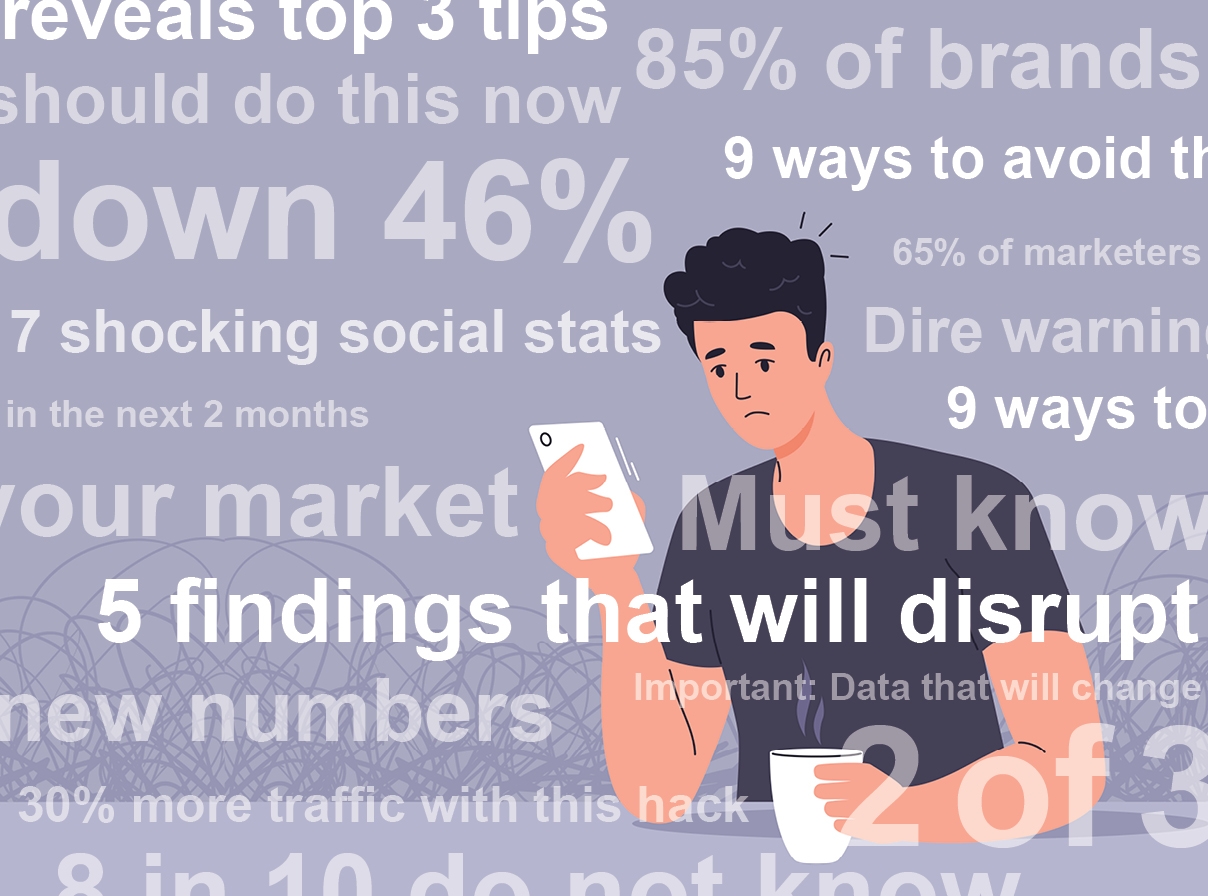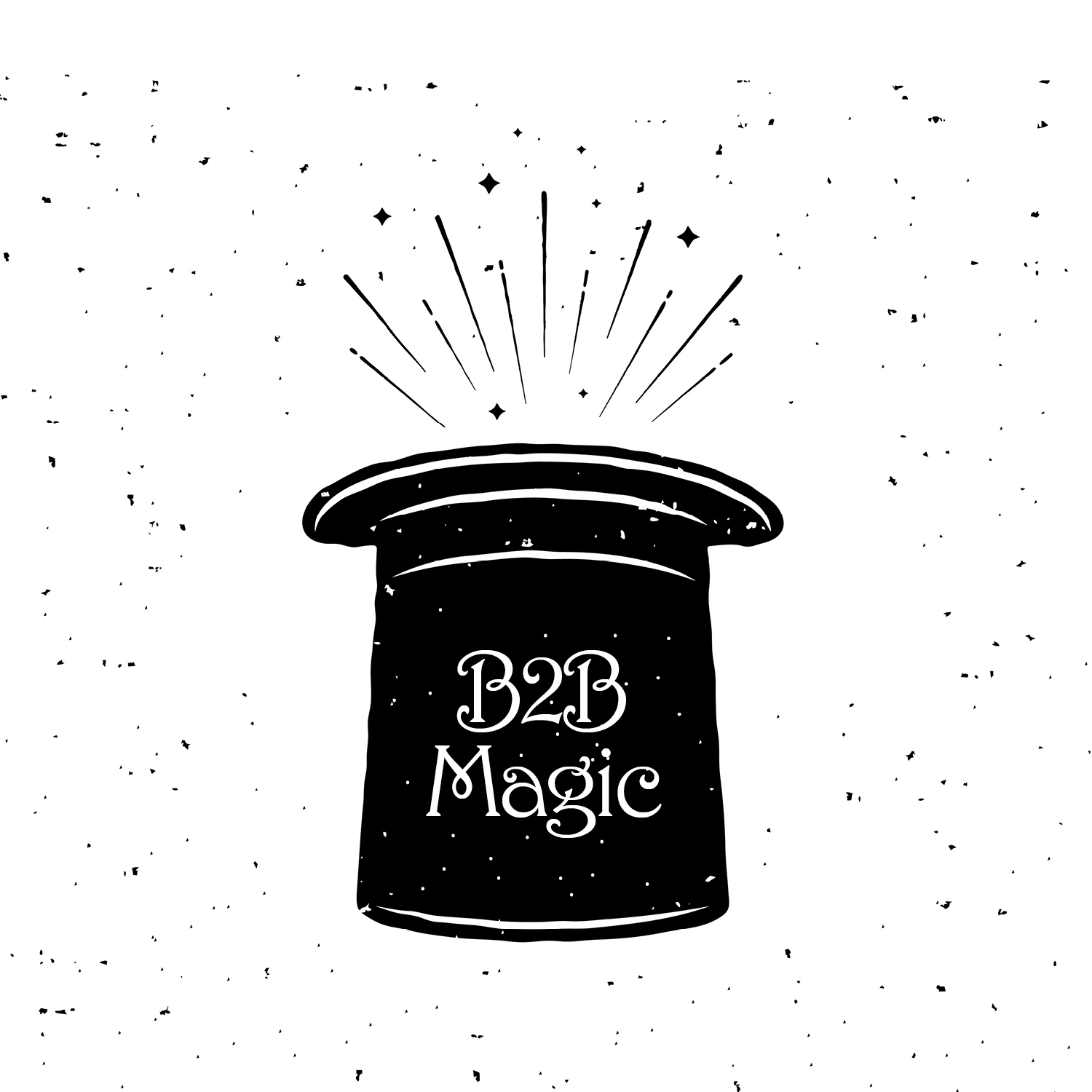Marketers give thanks
Are you feeling grateful at this moment? If not, we certainly won’t blame you. There’s not a lot of thankfulness in our world right now. Political parties, governments, religions, entertainers, sports teams and even educational institutions all seem to be at odds with each other. Enough. It’s time to put the anger away for a little while. Thanksgiving is fast approaching, and it’s supposed to be about expressing genuine gratitude. So, to put it bluntly, what are you thankful for? We asked our network that very question. We were curious to know what in their professional lives made them feel grateful. There were no rules regarding the responses except one: the reply had
The happy accident of B2B
You wanted to work on Nike. Or Coca-Cola. Or Apple. You wanted to create commercials with A-listers like Snoop Dogg, Tina Fey, Peyton Manning and Aubrey Plaza. And you wanted to win so many awards that those celebrities would ask for your autograph. Yes, once upon a time you wanted it all. That’s the allure of B2C. Then something inexplicable happened. You accidentally stumbled into B2B. At first, you wondered what went wrong. Instead of being a rising star on some famous B2C brand, you were stuck on an account with a microscopic budget
Thanksgiving Survival Kit
Thanksgiving is a wonderful concept. Family and friends gather, they share good food and gratitude, and everyone goes home happy and satisfied. However, like many great concepts, it sometimes falls flat in the execution. Thanksgiving has become the dreaded day when some of life’s most probing questions are asked. “Did you ever choose a major?” “When are you going to get married?” “Why don’t you have any children?” “When are you going to buy a house?” Ouch. And if you happen to be a B2B marketer, Turkey Day brings an entirely different set of mood-destroying comments. It’s the holiday when your family tries to figure out precisely what you do for a living and determine why anyone
True-life B2B horror stories
Boomm celebrates Halloween in a big way. One year, we held a scary story contest that resulted in some remarkably imaginative entries. Another year, our CEO Gary Mattes created a lighted sign that eerily glowed “BOO,” until the letters “MM” illuminated to complete the agency name. But the most frightening memories by far are from our old, haunted offices in La Grange. Boomm employees still whisper about “The Twins,” our resident ghosts. These spectral sisters were always making unexplained noises, knocking objects off shelves, rumbling about in the dusty attic, or triggering car alarms during client calls. The Twins made working late at Boomm an adventure for the brave hearted. In the spirit
Marketing awards that actually matter
Every year around this time the insanity begins. The first emails arrive proclaiming, “Call for entries.” The account and creative teams heatedly debate over which campaigns might impress the judges. The agency president frets over winning more trophies than her competitors. And the low-key accountant starts ranting when he sees the escalating cost of the entry fees. Yes, it's marketing awards time again. This whole pageant might seem silly to outsiders, but the marketing world cherishes its awards more than ever. In fact, a recent Google search for “marketing awards” produced 1,110,000,000 results. This season you can enter competitions for global marketing, regional marketing, digital marketing, content marketing, broadcast marketing, event marketing, influencer
The storytelling obsession
The marketing profession has become obsessed with the idea of storytelling. Marketing channels have essentially become modes of storytelling. You’ll hear the desire for “good stories” used regularly in reference to content, videos, websites, social media, podcasts and even data. Marketing titles have also evolved to include storytelling. A recent Google search for “storytelling jobs” produced over 1,000 results. Here are some of the positions that came up: Chief Storytelling Officer Story Strategist Director of Digital Storytelling Head of Story and Narrative Visual Storyteller Storytelling Coach Content Storyteller Executive Storytelling Head Brand Storyteller But it doesn't stop there. Even entire agencies have been rebranded to focus on storytelling instead of marketing. From a
The stats story
By Randy Mitchell “Here’s a crazy idea
When B2B goes off the rails
By Randy Mitchell There are some moments when the world of B2B does not make sense. Thankfully, these meltdowns are few and far between. I had one of them last week and I’m still reeling. My moment of madness happened because I read the following statistics from Hubspot: 73 percent of B2B firms have increased their marketing spending in 2022 63 percent of B2B firms do not follow a formal marketing RFP process The first stat made perfect sense. The second one is stupefying. Let’s say you work at a B2B firm that’s planning a major marketing initiative like a social media program launch, website redesign, video production or full-on rebranding. What’s the first logical step
Want the best work from your agency? Use the Magic Document.
By Randy Mitchell You’re a reasonable marketing professional: smart, productive, and you have great taste in blogs. You work for a reasonable company: they have important programs, big plans, and they were wise enough to hire you. So, when your company’s leadership team makes the all-important decision to bring in a marketing firm, it’s only reasonable to expect the agency’s best work. But will that expectation truly materialize? Far too often the answer is no, particularly when it comes to B2B marketing. The relationship starts well enough. Everyone seems to connect, and the agency promises a quick ramp up and real progress. “They actually get it,” growls the company’s tough CEO, and everyone is smiling. Then
The “stat story:” How marketing statistics became the message
by Randy Mitchell, Creative Director “Why don’t we make the stats into the story?” That was how the whole movement started. Some strategic visionary decided that marketing statistics were compelling enough to be the focus of entire campaigns. At the time, this thinking must have seemed like heresy. B2B marketers firmly believed that the findings are there to support the story, not replace it. Successful B2B campaigns focused on weighty matters, such as prospect pain points, industry regulations, customer feedback and product differentiation. Using marketing statistics as the lead for communications was simply not a viable strategy. Until it worked. In fact, the approach kicked stats. Suddenly, response rocketed because target segments did not want












